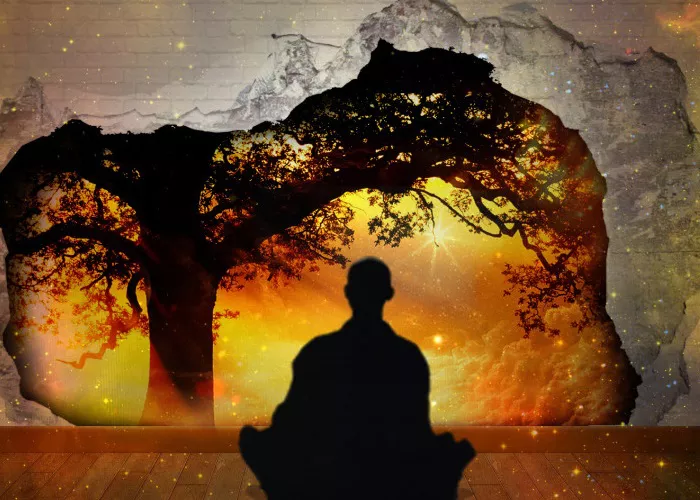Welcome to Poem of the Day – At Dusk by Taigu Ryokan.
Taigu Ryokan, a revered Japanese Zen monk and poet, is known for his simple yet profound poems. His work reflects his deep connection to nature, his Zen philosophy, and his solitary lifestyle. One of his notable poems, At Dusk, captures the quiet beauty of the evening and the peace found in solitude. In this article, we will explore the poem, its structure, and the major elements that make it resonate with readers.
At Dusk Poem
At dusk
I often climb
to the peak of kugami.
deer bellow,
their voices
soaked up by
piles of maple leaves
lying undisturbed at
the foot of the mountain.
At Dusk Poem Explanation
The poem At Dusk by Taigu Ryokan is a brief yet powerful reflection on the serene moments of twilight. In the poem, Ryokan captures the stillness of the evening, a time when the world transitions from day to night. The poem conveys a sense of tranquility and peace, evoking feelings of inner calm that come with the quiet of dusk.
Ryokan’s writing often emphasizes the Zen practice of mindfulness, where the present moment is all that matters. The evening time, with its subtle shifts in light and sound, serves as a metaphor for the simplicity and beauty of living in the present. The poem invites readers to pause and appreciate the world around them, suggesting that peace can be found even in the quietest moments of life.
Structure and Form
At Dusk follows a traditional form of Japanese poetry, which is simple in structure but profound in meaning. The poem is composed in a short, unadorned style, typical of Haiku or other Zen-influenced forms. In its brevity, it conveys a deep sense of stillness and reflection.
The poem’s structure reflects Ryokan’s Zen approach to writing—concise and to the point. There are no unnecessary embellishments or complex metaphors. The simplicity of the form mirrors the message of the poem: peace and clarity are found when we strip away the noise and distractions of life.
Detailed Explanation of Major Elements
Nature and the Time of Day
The central theme of the poem is nature, especially the transition from day to night. Ryokan uses the time of dusk to highlight the changing light and its effect on the world. In Zen poetry, nature often symbolizes the fleeting nature of life itself. Dusk, as the end of the day, represents both an ending and a beginning—a moment of transition that invites contemplation.
Solitude
The poem’s mention of being “alone” emphasizes solitude, which is a key element of Ryokan’s personal philosophy. As a Zen monk, Ryokan often lived alone in nature, seeking peace away from the distractions of society. The poem’s quiet tone and focus on solitude suggest that true peace comes from within, and that being alone with one’s thoughts can lead to profound insight.
Simplicity
Ryokan’s poetry is marked by its simplicity, not just in structure but in its message. The poem’s straightforward language reflects Zen teachings, which value simplicity as a way to reach clarity of mind. In a world filled with noise and distractions, Ryokan encourages the reader to find peace in the simplicity of everyday moments—like the transition of day into night.
Peace and Tranquility
At the heart of the poem is the theme of peace. The quiet of dusk, with its fading light and calm atmosphere, represents a time for inner stillness. The peaceful tone of the poem encourages readers to embrace the present moment and find tranquility in the natural world. It reminds us that moments of calm can bring clarity and contentment.
Conclusion
In At Dusk, Taigu Ryokan offers a beautiful meditation on the peacefulness of nature and the simplicity of life. Through his minimalist style, he captures the essence of Zen philosophy—finding peace in the present moment and embracing solitude as a source of clarity. The poem’s structure, simplicity, and natural imagery invite readers to pause and appreciate the world around them. It is a gentle reminder that, like the evening sky, moments of peace are fleeting but can offer profound comfort.

